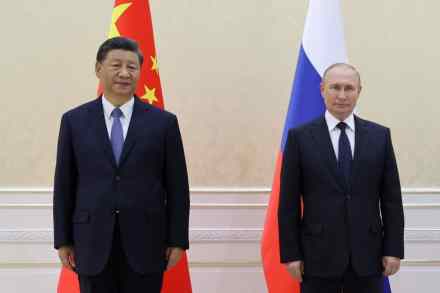Even Xi is unimpressed with Putin’s bungling autocracy
To say that Vladimir Putin is giving autocracy a bad name is rather to state the obvious. But it now appears to have dawned even on his ‘old friend’ Xi Jinping that Russian incompetence and cruelty in Ukraine is undermining their joint ambition to re-write the international order. Putin’s admission that Beijing might have ‘concerns’ about his bungled war was cryptic but striking. ‘We highly value the balanced position of our Chinese friends when it comes to the Ukraine crisis,’ Putin said in remarks ahead of their meeting in Uzbekistan. ‘We understand your questions and concerns about this. During today’s meeting, we will of course explain our position.’ Xi was





















